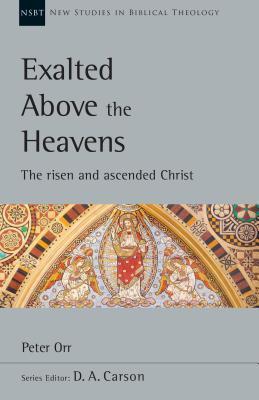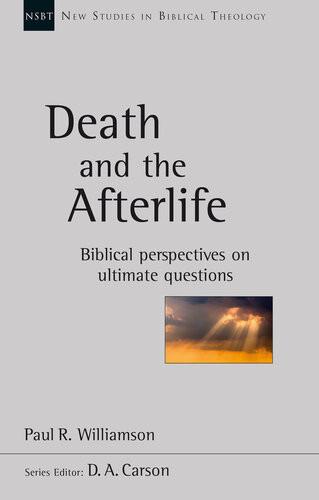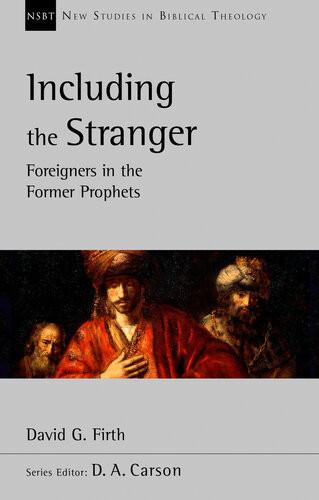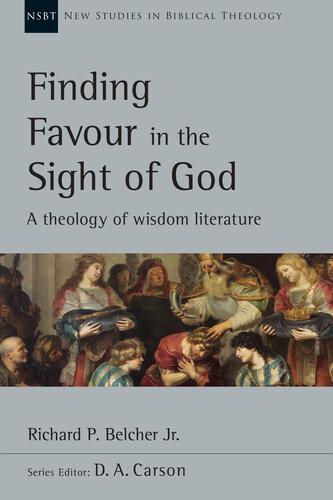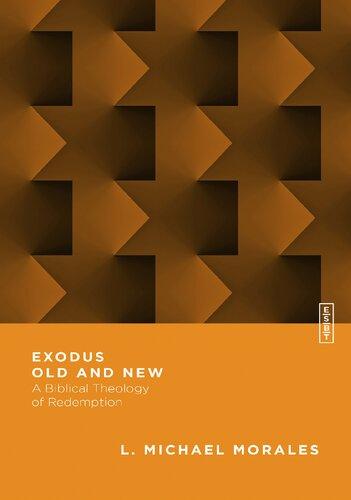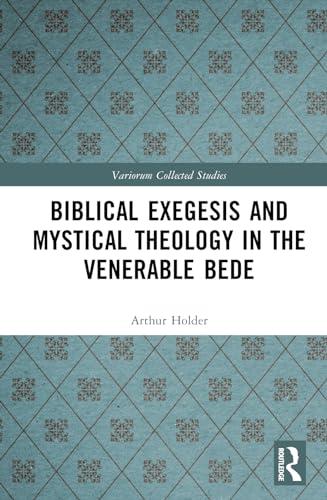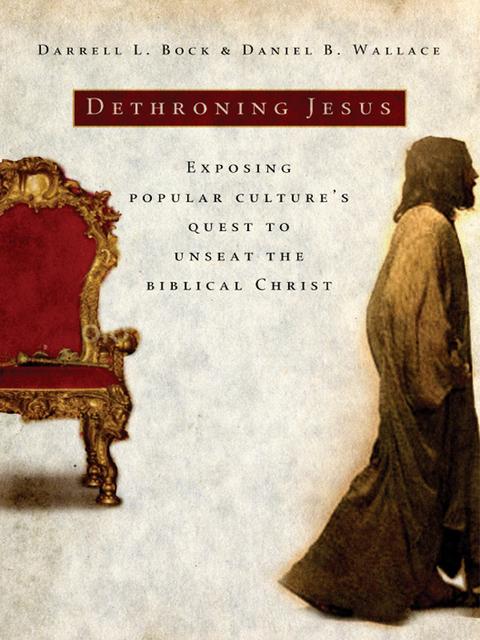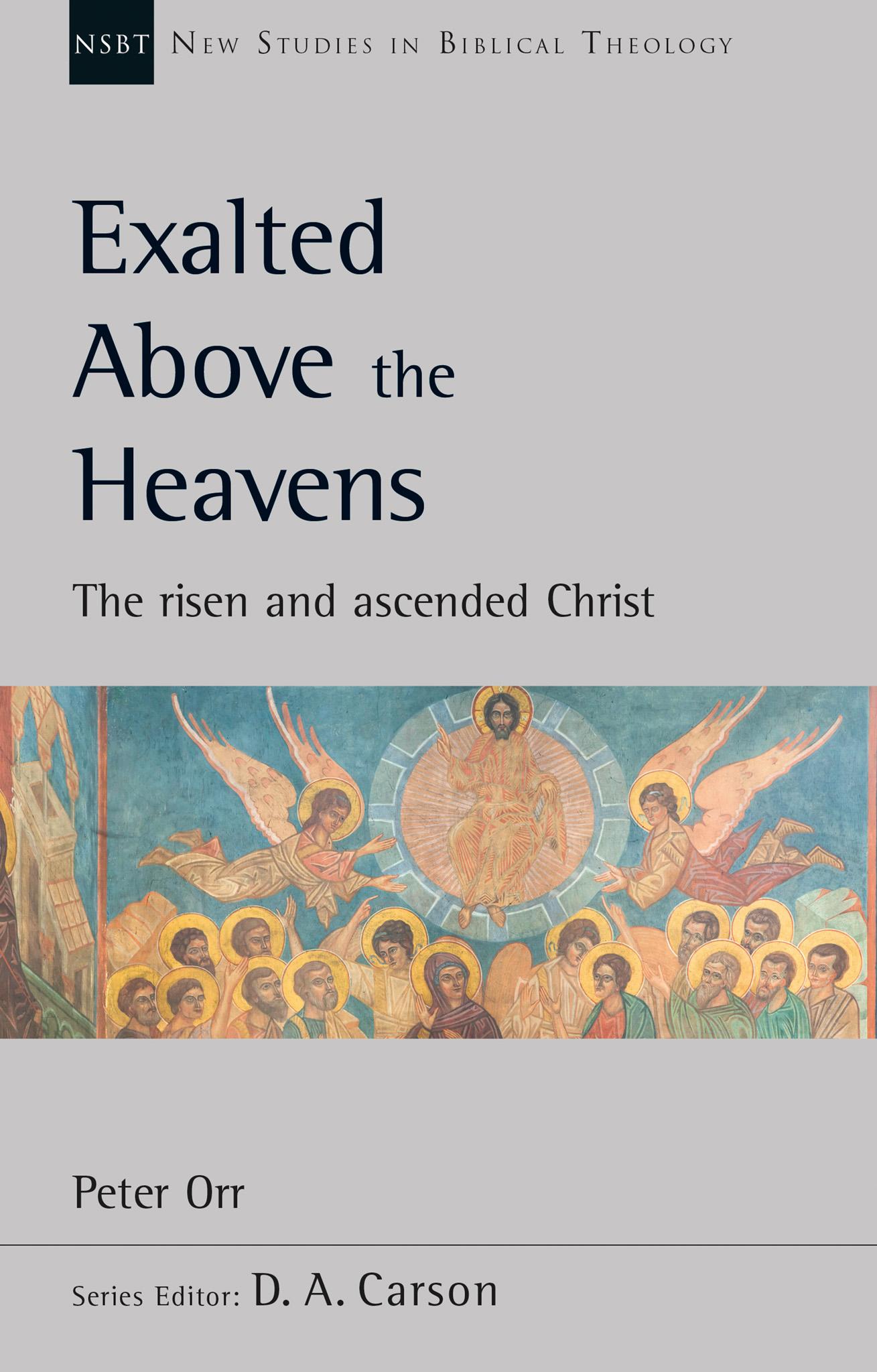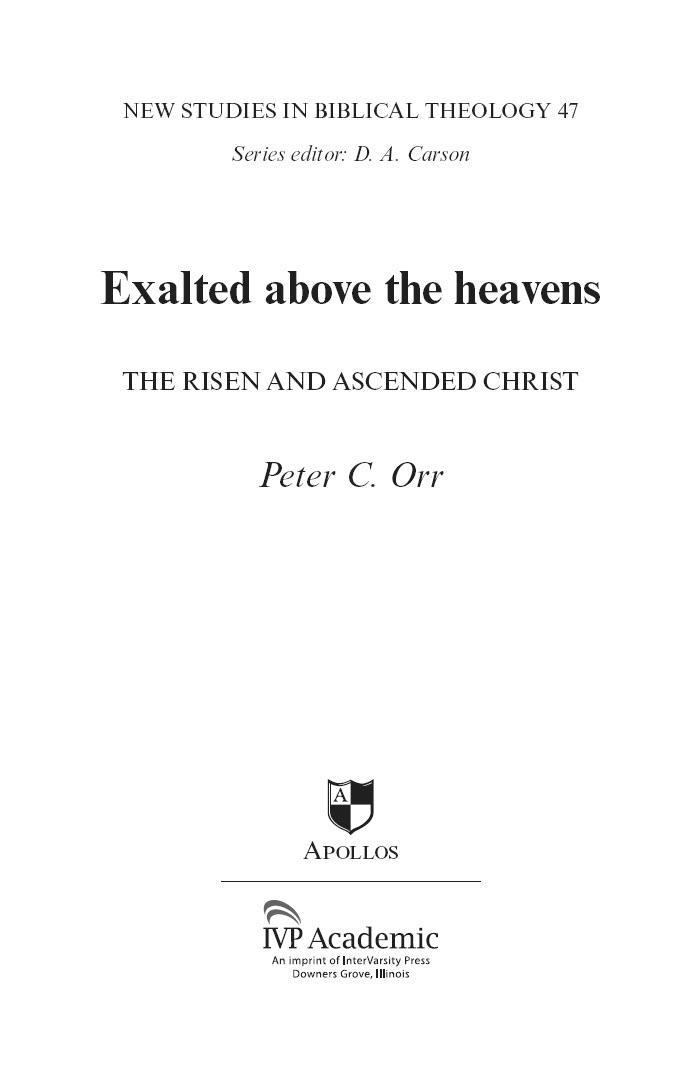The identity of the exalted Christ: the exalted Christ and the earthly Jesus
Introduction: defining identity
Defining the identity of the exalted Christ, on the surface at least, appears to be straightforward. NT writers uniformly consider the Christ who is exalted to be the same person as the Jesus who died. So, for example, in 1 Corinthians 15:3–4 Paul maintains that the Christ who died is the Christ who was raised. In Hebrews 1:3 the one who ‘made purification for our sins’ is the one who then ‘sat down at the right hand of the Majesty on high’. In Revelation 1:7 the one who is returning is the one who was ‘pierced’.
However, the question of identity is more complex than it appears at first and attempts to define it fully have put bread on the table for generations of philosophers. For our purposes, it is enough to touch on two aspects of identity that have been highlighted in these discussions. 1 First, identity as ‘singularity’; 2 that is, ‘the specific uniqueness of a person, what really counts about him’. 3 What is it that makes a person unique? Second, identity in terms of relationship. That is, personal ‘identity is never merely an individual matter, as though we are what we think’. Rather, it ‘is always a social product, the upshot of multiple perceptions’. 4 Our identities are never formed in isolation but are always shaped in relationship with others. 5 And so, to ‘tell the story of Jesus is to tell the story of his relationships’. 6
These two aspects of identity are helpful for organizing our reading of the NT and what it says about the exalted Christ. In this chapter we will consider Christ’s identity in terms of his singularity. We will examine the continuity of the exalted Christ and the ‘earthly’ or ‘historical’ Jesus (a
relationship which has been the subject of considerable debate in NT scholarship). I will show that his personal identity remains the same – the Christ who is exalted is the Jesus who was crucified. Nevertheless, we will also see that, in a number of places, Christ’s identity seems to be reconfigured by the resurrection. Following the resurrection, the NT can use the language of Jesus’ being ‘made’ Lord and Christ (Acts 2:36) or being ‘begotten’ as Son (Acts 13:33; cf. Rom. 1:4). It can also use the language of Jesus’ receiving a new name (Phil. 2:9; cf. Heb. 1:4; Rev. 3:12). In what sense does Jesus’ identity develop or expand following his exaltation?
We will consider Christ’s identity in terms of his relationship with others in the following chapters as we consider his relationship to the Spirit and to the church. In chapter 3 we will see that in a number of Pauline passages (including Rom. 8:9–10; 2 Cor. 3:17) and in John’s farewell discourse the risen Christ seems to be identified with the Holy Spirit. The language leads some scholars to conclude that following the resurrection ‘Jesus himself becomes the life-giving Spirit’. 7 We also need to consider the relationship of the risen Christ to the church across the NT. Again, the closeness of this relationship leads some scholars to identify the risen Christ and the church, arguing that the ‘line of distinction between Christ and his people has become blurred if not erased altogether’. 8
Continuity in identity: the exalted Christ is the earthly Jesus
The debate
One of the key debates in twentieth-century NT scholarship was between Rudolph Bultmann and his pupil Ernst Käsemann concerning the continuity or otherwise between the ‘earthly’ (or ‘historical’) Jesus and the exalted Christ. For Bultmann, the ‘historical’ Jesus (even if we could access him) is of no relevance whatsoever. To try to reconstruct the historical Jesus would be merely to try to pursue ‘Christ according to the flesh’, which the apostle Paul rules out (2 Cor. 5:16). 9 For Bultmann what counts is the proclaimed Christ. Christ has risen into the proclamation of the gospel and is encountered there (and only there). We encounter Christ only in the
kerygma, the proclamation. Following the resurrection, the ‘proclaimer became the proclaimed’. 10
Käsemann, for his part, is sympathetic to his former teacher, and even grants the validity of Bultmann’s statement that ‘Christ rises again into the kerygma’ (though he does label it ‘hyperbole’). However, his great concern is that the earthly Jesus (and his teaching) is necessary ‘to keep the preached Christ from dissolving into the mere projection of an eschatological self-consciousness and becoming the object of a religious ideology’. 11 For Käsemann, seeing how the church in Germany supported the Nazi regime in the Second World War convinced him that the preaching of the church needed to be controlled by the preaching of the earthly Jesus.
On this debate, Sarah Coakley is very perceptive in observing that the two were actually arguing at cross-purposes because their understandings of terms were radically different. That is, for Bultmann continuity meant ‘full and complete identity, identity in all characteristics, between the prior and the latter states’, emphasis original – which he denied. For Käsemann, it meant ‘merely a contentful enduring of certain key characteristics between the two’, emphasis original – which he insisted on. 12 They differ, too, on what is meant by the ‘historical Jesus’. For Bultmann it means the ‘historians’ Jesus’, while for Käsemann it means the ‘earthly [or pre-Easter] Jesus’ and so ‘there had to be some substantial continuity if the “risen Christ” was not to evaporate into a docetic or ghostly variant’. 13 As such, Coakley suggests, it is necessary to distinguish between epistemology and ontology, ‘between ontological states of Jesus’ identity (whether earthly or risen) and epistemological forms of response to him (whether through historical research or decisions of faith)’. 14
There is no need to enter into this debate more fully except to observe that there is both continuity and discontinuity between the earthly Jesus and exalted Christ. That is, there are NT texts which both Bultmann and Käsemann could appeal to. A more careful understanding of identity prevents this reductionistic approach; that is, either absolute continuity or absolute discontinuity. There is continuity but also development in Christ’s identity.
These two aspects are well illustrated in Luke’s two-volume work. In her chapter on the identity of Jesus in Luke–Acts Beverly Gaventa notes Luke’s pattern of what she calls ‘identity changing’. A character in the Gospel may
be first identified but then have his or her identity redefined or qualified in some way. So, for example, the woman introduced as ‘bent over’ (Luke 13:11), and so defined by her illness, is reidentified as a ‘daughter of Abraham’ (13:16). Zacchaeus is introduced as a ‘chief tax collector’ (19:2) and so is a person implicitly who needs to repent (3:12). Jesus then reidentifies him as a ‘son of Abraham’ (19:9). 15 This reidentification continues into Acts, where Saul is described by Ananias as a notorious man who has done much evil (9:13), but this description is corrected by the risen Lord Jesus. Saul is actually his ‘chosen instrument’ for carrying Jesus’ name ‘before the Gentiles and kings and the children of Israel’ (9:15). 16 Crucially for Gaventa this process of reidentification is also applied to Jesus: ‘As the narrator introduces other characters, only to have them reidentified by Jesus, the narrator also introduces Jesus to readers and hearers in ways that are later amplified or corrected or redirected.’ 17 So, for example, Jesus is introduced as a king even before his birth (1:32–33), but throughout his Gospel, Luke redefines and clarifies his readers’ idea of what sort of king Jesus is. This reidentification culminates with the sign above the cross identifying him as ‘King of the Jews’ (23:38). In other words, he is not a king ‘in the usual sense of that word’. 18 The redefinition continues into Acts, where Jesus is proclaimed as ‘Lord of all’ (10:36) and so a king ‘in a sense that lies beyond human comprehension’. 19 Gaventa’s treatment of Jesus’ identity in Luke–Acts is a helpful illustration of how attending to both continuity and development helps us understand his identity more carefully.
Continuity
The very notion of resurrection presupposes continuity of identity since the ‘posit of an unidentified risen person is oxymoronic’. 20 Throughout the NT it is repeatedly affirmed and demonstrated that the Jesus who lived and died is the same Jesus who was raised and is reigning. The Gospels recount how Jesus predicted his own resurrection, and each Gospel affirms that it is Jesus himself who has indeed been raised (e.g. Matt. 28:9; Mark 16:6; Luke 24:36; John 20:14). Similarly, Acts in both its narrative (1:3) and its discourse (e.g. 2:32, where Peter is emphatic: ‘This Jesus God raised up, and of that we all are witnesses’) affirms this continuity in identity. This is
illustrated in the three accounts of the conversion of Saul. In each one, Saul is confronted with the risen Lord Jesus and in response he asks the question ‘Who are you, Lord?’ (9:5; 22:8; 26:15). In each case the risen Christ identifies himself as ‘Jesus’ (9:5; 26:15), or by the more specific ‘Jesus of Nazareth’ (22:8).
For Paul, it is Jesus who was raised (e.g. Rom. 4:24; Gal. 1:1). In Philippians 2:6–11 he cites what many believe to be a pre-existing hymn, 21 which traces the ‘story’ of Jesus from his pre-earthly life through to his incarnation, death on the cross and, finally, his exaltation by God. It is worth noting with Hays that this passage shows us that the distinction between ‘the Jesus of history’ and ‘the Christ of faith’ is misleading
For Paul, Jesus Christ is a single person whose identity is disclosed in a seamless narrative running from creation to the cross to the resurrection to the eschaton. The historical details of his earthly life, such as his death by crucifixion, are no more and no less part of his identity than his role in creation and his present lordship in the community of those who call on his name 22
Development in identity: revelation, name and status
I imagine that most readers of this book do not need to be convinced that the NT affirms a basic continuity in identity between the earthly Jesus and the risen and exalted Christ. In this section we will consider in what sense Jesus’ identity undergoes change in his exaltation (his resurrection and ascension). We will examine a number of texts that suggest that he did undergo such change, and we will see that though there are ways that these texts have been misunderstood, nevertheless they help us to see that the resurrection did not leave Jesus unchanged – even at the level of his personal identity.
The need for revelation
Though the Gospels affirm that the risen Christ is Jesus, they also affirm that the resurrection has not left him unchanged. This is highlighted particularly in Luke and John, where, following the resurrection, even Jesus’ closest followers struggle to recognize him.
Luke describes the two disciples walking on the road to Emmaus and that ‘their eyes were kept from recognizing him’ (24:16). Even following an extensive discussion with Jesus they do not recognize him. They do so only when ‘their eyes were opened’ (diēnoichthēsan – a passive verb; 24:31). Later the disciples recount that Jesus ‘was made known to them’ (����; egnōsthē – also passive) ‘in the breaking of the bread’ (24:35).
Similarly, in John’s Gospel Mary fails to recognize the risen Jesus. Having gone to his tomb, when she encounters Jesus they have a brief conversation, but Mary recognizes Jesus only when he addresses her by name (John 20:16). Likewise, the seven disciples who have been fishing all night do not recognize Jesus standing at the shore (21:4). When his advice leads to the miraculous catch, the beloved disciple realizes that ‘[i]t is the Lord’ (21:7). The disciples then make their way to the shore to have breakfast with Jesus. Even in this intimate environment there is still uncertainty regarding Jesus’ identity. Though John tells us that ‘[t]hey knew it was the Lord,’ he precedes this by stating that ‘none of the disciples dared ask him, “Who are you?”’ (21:12). Their grasp of Jesus’ identity, then, remains somewhat tenuous. It is not obvious or straightforwardly discernible to them that he is the risen Jesus.
Does this lack of recognition on the part of the disciples indicate that Jesus’ body was so different that they simply could not have known that it was him? Certainly, his body is clearly a human body. Jesus can be seen with the eye, he can be touched (Luke 24:39; John 20:27); he can eat (Luke 24:43). Even though they fail to recognize him, they still relate to him as another (normal) human being. In fact, it seems that it is his very ordinariness that contributes to their failure to recognize him (the disciples think Jesus is simply another traveller on the road to Emmaus; Mary mistakes him for a gardener).
However, perhaps the disciples’ lack of recognition implies more that the ability to grasp that Jesus is risen is not a simple matter of natural observation but of revelation. For Luke, as we have seen, it is only when their eyes are ‘opened’ and Jesus is ‘made known to them’ that the disciples grasp who he is. For John, Jesus does not only appear to the disciples but is ‘manifested’ or ‘revealed’ (ephanerōthē – again passive) to the disciples (21:14). Their way of relating to him has changed following the resurrection. His identity has changed, not in the sense that he is no longer
the same individual, but in the sense that he is not apprehended simply with the naked eye. To understand Jesus as the risen Jesus is to have his identity revealed. Of course, this was true during his earthly ministry – a true grasp of his identity was only ever a result of revelation (Matt. 16:17; John 3:2–3). And so to grasp fully that Jesus is risen, to identify him as the risen Lord, is not simply a matter of observing a natural phenomenon but of revelation. A full apprehension of his identity as risen Lord comes only through revelation.
A new name
The exalted Christ is the risen Jesus. He remains the same person, his identity (considered in terms of his distinct, unique singularity) remains constant. However, in a number of places the NT seems to teach that following his resurrection (and/or ascension), Jesus is given a new name. In Philippians 2:9 Paul tells us that following Jesus’ death of the cross, God ‘has highly exalted him and bestowed on him the name that is above every name’. The elevated nature of Christ’s name is also apparent in Ephesians 1:20–21, where Paul tells his readers that following the resurrection, God ‘seated him at his right hand in the heavenly places, far above all rule and authority and power and dominion, and above every name that is named’. In Hebrews 1 the author begins by extolling the supremacy of Christ. At verse 4, he begins to compare Jesus to angels and maintains his superiority over them. Following Jesus’ death and his being seated at God’s right hand, the author tells us that Jesus became ‘as much superior to angels as the name he has inherited is more excellent than theirs’. Both Philippians 2:9 and Hebrews 1:4, then, speak of Jesus’ receiving a new name following his exaltation. This same idea is expressed in Revelation 3:12, where the risen Lord Jesus tells the church at Philadelphia that for the ‘one who conquers’, he will make him a ‘pillar in the temple of my God’ and ‘will write on him the name of my God, and the name of the city of my God, the new Jerusalem, which comes down from my God out of heaven, and my own new name’. Before returning to these verses, it is worth looking at how names are used in the OT.
Names in the Old Testament
Though we do not have space to offer a full survey of the concept of ‘name’ in the Bible, a few comments may be helpful. Naming someone is a sign of authority, as shown by Adam’s naming the animals in the garden: ‘whatever the man called every living creature, that was its name’ (Gen. 2:19).
Further, a person’s name is related to his or her reputation or character. The builders of the tower of Babel want to ‘make a name’ for themselves (Gen. 11:4). For God to make someone’s name great is an expression of God’s blessing (Gen. 12:2).
The concept of God’s name is a rich one in the Bible. In Exodus 3 he tells Moses that his name is ���� 23 and that this is ‘my name for ever, and thus I am to be remembered throughout all generations’ (Exod. 3:14–15). And yet a few chapters later the Israelites are reminded to worship only the Lord ‘whose name is Jealous’ (Exod. 34:14). At the very least this shows that the biblical concept of a ‘name’ can be more fluid than a Western idea that it is the ‘tag’ that uniquely identifies a person. In Exodus it can be closely tied to character.
We see this most clearly in Exodus 34:5, where we are told that the Lord proclaims ‘the name of the L���’ to Moses. In the very next verse we read that ‘[t]he L��� passed before him and proclaimed, “The L���, the L���, a God merciful and gracious, slow to anger, and abounding in steadfast love and faithfulness.”’ In other words, proclaiming his name and proclaiming his character seem to be two sides of the same coin. The Lord guards his name and his reputation, speaking through Isaiah:
I am the L���; that is my name; my glory I give to no other, nor my praise to carved idols (Isa 42:8)
And so to profane God’s name is to profane his character, and to take the Lord’s name in vain is a serious thing and he ‘will not hold him guiltless who takes his name in vain’ (Exod. 20:7; cf. the execution of the man who ‘blasphemed the Name’, Lev. 24:11). Conversely, to fear God’s name is to fear him (Deut. 28:58).
There is a strong association throughout the OT between the temple and the Lord’s name. The temple is the place where his name dwells (cf. Deut. 14:23; 14:24; 16:2, 6, 11; 26:2; 1 Kgs 3:2; 5:5; 8:29; etc.). Nevertheless,
given the ubiquity of God’s glory, his name is seen ‘in all the earth’ (Ps. 8:1, 9). There is also an association between angels and God’s name. The Israelites are warned to pay attention to and obey the angel who will guard and lead them because ‘my name is in him’ (Exod. 23:21). In Judges 13 Manoah is told that he cannot know an angel’s name since ‘it is wonderful [thaumaston, ���]’ (Judg. 13:17–18). 24
Names are also connected to covenantal blessings in the Bible. God promises to make Abraham’s name great (Gen. 12:2); he does the same for David, promising ‘I will make for you a great name, like the name of the great ones of the earth’ (2 Sam. 7:9). Further, being named by the Lord is connected with redemption and relationship with him. Through Isaiah he tells Israel:
Fear not, for I have redeemed you; I have called you by name, you are mine.
(Isa 43:1; cf 45:4)
Even more wonderfully a few chapters later he promises his people:
I will give in my house and within my walls a monument and a name better than sons and daughters; I will give them an everlasting name that shall not be cut off.
(Isa. 56:5)
This ‘everlasting name’ is developed later when Isaiah tells the people that nations shall see your righteousness, and all the kings your glory, and you shall be called by a new name that the mouth of the L��� will give.
(Isa 62:2)
One implication of this brief study of names, which anticipates some of the discussion below, is that while a rigid distinction between ‘name’ and ‘title’ may be relevant in Western culture it does not quite reflect the more fluid use of the concept of ‘name’ in the Bible.
The name that is above every name (Phil. 2:9)
Philippians 2:6–11 is one of the most Christologically significant passages in the NT. It moves from Jesus’ pre-existence (v. 6) to his incarnation (v. 7) to his death (v. 8) to his exaltation (vv. 9–11). As we saw above, Paul assumes a basic continuity between the ‘earthly’ Jesus and the exalted Christ. The first half of the passage, or ‘hymn’ (as many suggest it is), is full of complex exegetical issues, while the second half is, thankfully, less debated. 25 Nevertheless, in verse 9 two are important for our purposes: the meanings of ‘highly exalted’ (hyperypsōsen) and the referent of the ‘name that is above every name’.
Following Jesus’ death, 26 Paul tells us that God has ‘highly exalted’ him. 27 Some debate centres on whether this is a restoration to his position of former glory 28 or if the exalted Christ is exalted ‘to a place which he had not reached previously’. 29 This is difficult to answer, and may, in fact, be the wrong question to ask. 30 What seems to be clear is that the pattern of Jesus’ humiliation and exaltation closely parallels that of the suffering and exaltation of the Suffering Servant in Isaiah 52:13 – 53:12. 31 A strong case can be made that in his exaltation the servant was sharing in the unique divine identity. 32
These two clauses ‘highly exalted him’ and ‘bestowed upon him the name’ are connected by the Greek word kai. It may be that Paul understands two successive events: exaltation and then bestowal of the name. However, if the kai is epexegetic (explanatory), the bestowal of the name is the exaltation. 33 That seems to fit this context where the emphasis is not on the position of Christ (at God’s right hand) but the response of worship to his new name.
So, what is the ‘name that is above every name’? Paul immediately continues that because he has this supreme name, ‘at the name of Jesus every knee should bow, in heaven and on earth and under the earth’ (2:10), suggesting that this name is simply Jesus. However, the Greek genitive construction ‘name of Jesus’ (onoma Iēsou) could equally indicate ‘the name which Jesus possesses or bears’. 34 And so by far the most common suggestion is that the name that Jesus is given is ‘Lord’ (kyrios). That would certainly fit with Acts 2:36 (see below), and also with what Paul goes on to say in verses 10–11: ‘so that at the name of Jesus every knee should bow, in heaven and on earth and under the earth, and every tongue confess that
Another random document with no related content on Scribd:
recognition, as she turned aside to go into the concert-hall with the American lady and the thin man, who chanced to be with her that day.
A Thursday Classic Concert was being given by the world-famous orchestra; the hall was crowded. Ermengarde thought she recognized everybody she knew on the Riviera in different parts of the house. An aunt, a genuine relative of her own, from Cap Martin, nodded across the fauteuils to her, and missed her in coming out, not wholly to Mrs. Allonby's regret. Elderly relatives are for the fireside, with purring cats, singing tea-kettles and buttered muffins, but they scarcely seem in keeping with places of public amusement. Family matters should never be discussed at full-dress functions.
It was very pleasant outside in the sunlit Gardens by the café, where chairs in a commanding position had been easily found. Fine orchestral music agreeably excites the imagination while it soothes the nerves. Never had the Pathetic Symphony of Tchaikowsky been more beautifully played; it lingered and echoed with harmonious heart-break in the imagination, heightening the beauty of the scenery, making the fresh air fresher and the tea even more enjoyable.
Lady Seaton came up, bringing a nephew, and was easily induced to join the tea-party. The nephew turned out well. Ermengarde observed that his nose was in the Greek style, and his eyes twinkled like the little star of infantile verse. She was in the happy and peaceful mood induced by the subconsciousness of absolutely becoming and perfectly fitting costume. A glance snatched at a little mirror in her bag had assured her that not a hair was out of place, and neither flush nor pallor marred a complexion unsullied by powder or paint. In short, they were all in a mood of great content and enjoyment, when a sudden, a too familiar, sound struck upon Ermengarde's ear, and drew cold chills down her back. It was the voice of Miss Boundrish.
Vainly did the whole party, struck with sudden silence, try to look the other way, and avoid meeting the fair girl's speedwell blue eye, which beamed with friendly recognition and good fellowship. Making her way steadily through the crowd, with the captive Teuton in her wake, she bore
resolutely down upon them, her coral lips wreathed in smiles, and graciously announced her intention to join their party.
The captive, innocent of offence, obediently placed chairs in their circle, and gloomily discoursed upon the performance of the orchestra and the shots at the Tir aux Pigeons in correct English and an accent of resigned despair, Dorris, whenever the conversation threatened to become at all interesting, breaking in upon it with some trivial personality.
Mrs. Dinwiddie, fortified by three cups of scented China tea, and refreshed by several deep plunges into a box of superfine bonbons handed her by the thin man, had been drawn from raptures over the kettle-drums into some enlightening hints at the mysteries of American political machinery in different States, of which she had experimental knowledge.
Everybody, especially the Prussian officer, was listening with interest; no one spoke, except to draw out further information; even Ermengarde's familiar demon, the Anarchist, who, to her disgust, was sitting at a table near, drinking something through a long straw, was hanging upon Mrs. Dinwiddie's words, when Dorris, after several baffled attempts by various irrelevant remarks and inept questions, promptly snubbed by the genial Yankee, to plunge headlong into the talk, suddenly shouted, "Mrs. Allonby, I do want to know something very badly," with such energy and emphasis that it was impossible not to give some faint response.
"Yes?" said Ermengarde, politely patient, though she had not forgotten the fair girl's depreciation of her nose, which certainly had a tiny tilt at the tip.
"I want badly to know," Dorris called across Mrs. Dinwiddie, "whether you really are the wife of the Allonby?"
"That is so," echoed the American, her interest suddenly diverted. "Do tell, Mrs. Allonby, are you?"
"How can I tell?" she objected. "I know very well which is my Allonby, but how do I know which is yours?"
"Land's sake!" cried Mrs. Dinwiddie, "Why, the famous Allonby, to be sure—the author of 'Storm and Stress.' Are you a relative of that prominent writer?"
What was the woman driving at? 'Storm and Stress'? Was it—could it be the title of Arthur's latest effusion?
"Well," she replied slowly and thoughtfully, "I never like to be too certain about anything—it is not good manners, so I was brought up to think—but I—ah—I think—yes, I rather fancy that I am—connected with him—the writing-man you are speaking of. As far as I know, he is some sort of a connexion of mine—by marriage—only a connexion by marriage."
A curious snorting sound drew momentary and disgusted attention to the Anarchist, who appeared to be choking badly through the long straws— foreigners are so hopelessly ignorant of the niceties of table manners. Mrs. Dinwiddie looked disappointed, even defrauded, until she caught Ermengarde's eye, when her high-featured visage expanded into a genial smile. But Dorris was all gurgles, triumphant, exasperating. "I knew it all the time," she exclaimed scornfully. "I was sure you were not his wife, but Lady Seaton and Mr. Welbourne would have it you were."
"Mr. Allonby's is a very remarkable work," Lady Seaton said. "I don't know when I have been so thoroughly roused and invigorated by any book. All thinking people must be grateful to the author of 'Storm and Stress.'"
"All thinking people are," the nephew added; with firm conviction.
"Very kind of you to say so," Ermengarde faintly murmured.
"They're just mad about it on our side," Mrs. Dinwiddie told her. "We judge that Arthur Allonby has arrived with 'Storm and Stress' on our side."
"A not unusual way of crossing the Atlantic," Ermengarde hazarded, at her wits' end, and imagining some wild mistake or confusion of names, though not without some vague memory of the title mentioned, in connexion with a postal packet from Arthur's publishers, the contents of which she was always going, from a sense of duty, to investigate, and
always from innumerable causes omitting to. It would not run away; it could be opened and read at any time, which is no time.
"Well, I reckon it didn't make him sick anyhow," Mrs. Dinwiddie replied, with a grim smile, and Dorris stridently supposed that successful writers usually went to America to read their works in public, and always found that American cookery upset their internal economy more seriously than crossing the Atlantic, an observation that appeared to afford joy to everybody but the captive, whom it plunged into reverie of a melancholy nature.
The Allonby! Not her own native charm, then, but the prestige of that tiresome old Arthur's name was the cause of this new deference that had come to Ermengarde of late. And he had never told her—a lump rose in her throat—had left her to hear his good fortune casually from strangers. To be sure, he could hardly have been expected to write to her: "I have just become a celebrity," "My new novel is a marvel of genius," "I am one of the most remarkable men of this age." Still, she was injured. A wife should not be the last person to hear of a husband's promotion.
Going home in the train that afternoon, she found her neighbour absorbed in a Tauchnitz volume, and sudden curiosity overpowering good manners, she made out "Storm and Stress" on the top of the page. Dining with friends in one of the big barrack hotels that evening, she saw the book lying on little tables in the lounge, in the drawing-room, in her host's sitting-room; and, her glance being detected upon it, heard that it was being read all over Mentone, the Riviera, at Rome, at Florence, in the Engadine, in Paris, wherever wandering Britons congregated; that it was being discussed at suburban dinners and teas, and was found in the reading-rooms of West End clubs; that it had been consigned to the fire by Bishops, and preached about by Archdeacons; that it was talked of by people of culture, and had even penetrated to our most ancient Universities, where undergraduates, face downwards on the turf of sunny college gardens, had been known to pass shining hours in its perusal. And he had never said a word, and had grudged her five hats.
"How proud and happy you must be, dear Mrs. Allonby," said her hostess. "And how does he take it? Is he surprised, or does he take it all for
granted? He must at least have known that he was going to make a hit."
"Do you know the sex of the sphinx?" she returned faintly, some hot inexplicable tears misting her eyes. "I have always been sure the sphinx must have been a man. Men are so subtle—especially mine."
"Somebody was saying that the Allonbys don't quite hit it off," her friend told her husband afterwards. "And it's my opinion that she doesn't know where he is. I wonder if he knows where she is?"
When the wife of the Allonby reached her shelter on the ridge that night, she avoided meeting anybody, especially Agatha, who was equally anxious to avoid meeting her, and for the same reason—that she had been having a good cry. But Agatha knew perfectly well why she had had recourse to those waters of comfort, while Ermengarde had not the remotest idea.
Having felt the usual relief from the world-old remedy, brushed out her hair, wrapped herself in a dressing-gown, and smelt M. Isidore's latest floral offering, Mrs. Allonby lighted a tall candle and set to work to master the contents of the publisher's parcel.
So that, when an orange and crimson sunrise came up gloriously out of a peacock green sea, it showed a woman asleep in an easy-chair by a guttering candle, her head on one arm on a table, and half-hidden in a cloud of fair hair, with a volume labelled "Storm and Stress" on the floor at her side.
Chapter
XIV
Turbia
"What Roman strength Turbia showed In ruin by the mountain road. How like a gem, beneath, the city Of little Monaco, basking, glowed."
"Little Monaco, basking," and glowing, too, as the poet says, sits on its rock that runs out into the sea, in a world of its own, cut off, distinct, aloof from the every-day world, like some enchanted princess, walled away from reality in a faery land by rose and fire. The tiny city, that is also a principality, with a tiny harbour and arsenal at the rock foot, and a castled palace where it joins the mainland, is little more than a stone's throw—less than a long-range rifle-shot—from Monte Carlo, but in atmosphere worlds away. It has nothing in common with it, except the deep gorge stretching behind both and backed by the craggy bastion of the Tête du Chien and the dark rich sea, that breaks impartially upon the rocky base of each.
You may step into a tram-car at the Casino out of a crowd of painted women, sporting men, Jews, semi-invalids, respectable tourists, and disreputable sharpers from every capital in Europe, and from some in Africa and America, and in five minutes find yourself in an impossible fairy region of tranquil beauty—a town that is partly Italian and partly dreammagic, scantily peopled by priests, nuns, lay-sisters in various garb and wide-winged cap, orphanage children, Monagask soldiers, a few peasant folk leaning from roof-gardens and loggias in narrow, silent streets, and a sprinkling of humble bourgeois in the recesses of small dark shops, selling humble necessaries that nobody seems to want. Sometimes a procession of richly vestured priests, and acolytes with candles and swinging censers, slowly traverses the empty ways. The silence is so deep you can almost hear it. Every vista is closed by pines, through the deep-green boughs and ruddy stems of which glows that glorious deep-blue sea under a sky of paler blue.
And what a road it is that leads to the still city, winding round and up the steep rock, upon which she sits superb above the waters, a rock hung with rich-hued tapestry of geranium, cactus, rose, and even our old friend the homely blackberry, transformed by the wizardry of the winter sun into
splendour of crimson and golden arras. Very few steps past the dazzling new cathedral, that rises snow white above the quiet streets, lead you by a short turn into those strange gardens, that are really enchanted woods of olive, palm, and pine, with glorious flowers for undergrowth, cresting the sheer, sea-fronting steep of rock, down the face of which flowers, gorgeous creepers and hanging plants overflow to the white-combed breakers beneath. Thence the Armida gardens and glaringly vulgar Monte Carlo Casino gleam idealized in frames of olive foliage and pine-boughs, and all the beauty of the vast sweep of coast in its amphitheatre of circling mountains. Nightingale song throbs quick and rich above the deep murmur of surging wave and sighing pine-top, always providing you go at the right time; bees hum and the ring of a sail running down a mast with the wash of steam vessels and motors is faintly heard through the clear and sunny air. You may go back from this fairy land to the racket and worldliness of Monte Carlo through the strange vegetable diablerie and Arabian Nights' charm of the Casino gardens and their surrounding and intermingling shops and restaurants, and enjoy a still more striking contrast in the simple act of taking a seat in what Germans call a go-chair—Fahr-stuhl.
This prosaic modern convenience is found in a small dark enclosure that recalls a prison exercise yard, sunless, squalid. Take a seat in it, and wait patiently until it occurs to the mountain gnome or brownie in charge to work some spell of Nature magic, when the thing rises like the Arabian carpet, and in two minutes all the blazing diamonds, Parisian costumes, and blatant vulgarities centred round the glaring Casino sink and fade into a few blurred scars on the terraced hill-face below. Meanwhile the occupant of the cushioned go-chair winds and soars between cultivated vine and lemon terraces, scattered at intervals, with here and there a homestead and here and there a pergola and flower-garden, but mainly through woods of blackconed, light-foliaged Mediterranean pine and huge gnarled olives, blackfruited, of inconceivable antiquity, their grey columnar trunks writhen by secular, perhaps millennial, storms, rising from rich red soil between pale grey boulders—soars and winds up the vast sides of the mighty gorge, so thick and dark with olive and pine that the sparsely scattered brightness of vine and lemon and mimosa is lost among dense foliage; winds and soars till the woods thin and orange, olive, and myrtles are left far below, the gardens and vineyards grow poorer, the air keener, and the long, craggy
bluff ending in the Tête du Chien is scaled, and the go-chair stops finally under the shadow of the stately Roman tower of Turbia, massive and scarcely worn by time, but half ruined by the wanton violence of eighteenth-century spoilers.
And ever as the crude luxury and meretricious ornament of the pleasuretown sinks, the splendour of the sea-bounded prospect spreads and grows, from the purple majesty of Bordighera headland, running down from its Alpine background, to the promontory of Cap d'Ail beyond the craggy bluff that shelters Monte Carlo; with many a sheltered town and towered villa and headland stepping into foam-fringed bays, enclosed in the grand sweep of mountain coast. Just within the curve of the deep gorge under Turbia the Irish-looking column of Les Moulins stands up clear and gaunt far below, on the level-topped rock fringed with wood; Monaco shows bright and distinct on the broad plain of vivid blue sea, and, the centre of all, softened and lessened by distance, the white marble domes of the Casino are traced upon the liquid sapphire, vulgar no more, but lovely as if seen through
"Magic casements, opening on the foam Of perilous seas in faery lands forlorn."
Only nothing is forlorn in this land of light and colour; all is gay, friendly, full of laughter and life.
Yet on a certain radiant forenoon the Fahr-stuhl, or rope-railway, lifted through all this wild poetic beauty a healthy, full-blooded young Englishman, bright-eyed and well-groomed, blind to all.
He had wandered, aimless and unseeing, through the contrasted charm and picturesque strength of Monaco, strolled by the tiny harbour, up the hill, through the weird suggestion of writhen bone-like cactus-trees and richness of palm and aloe, caroub and rose and glowing flower-bed, past Casino and hotel, still unseeing, his features, made for facile laughter and easy geniality, lined by care and drawn into heavy frowns. From the gardens of Monaco he had looked long and wistfully into the sea breaking so softly at the rock foot, and once again by the harbour, with a sort of irresolute longing that came to nothing. In the funicular he had read and reread letters, and made calculations with pencilled figures, and then with
weary impatience torn them up and scattered them where the line ran steep and sheer above the gorge.
And when he stepped out upon the craggy mountain rim at Turbia, his listless feet took him to the plaster hotel tracing its mean outlines upon the sky, beside the majesty of the fine tower that marks Cæsar's subjection of conquered Liguria—subject to so many masters since—to Rome.
Perhaps he only went that way because the other occupants of the gochair, the lady with blackened eyes and red curls pinned outside her hatbrim, the gentleman with the hooked nose, shiny hair, and vast white waistcoat, the grave family party scattering exclamations of Wunderschön, Prachtvoll, Echt malerisch, on the sunny air, the mature maidens, absorbed in Baedekers, and lordly, tweed-clad Britons, conversing in grunts, went straight from the rich flesh-pots of Monte Carlo to the oil and wine of a mean restaurant perched on the stately crag-wall, making the centre view point for scores of miles round.
For when he found himself in the grounds looking down upon the vast splendour of mountain and sea, he seemed to recollect himself, turned and went through the village that lies modestly behind the Roman tower, over cobbled paths, under Roman archways, through narrow streets, picturesque with loggia and outside stair and dark-arched entrance, through wide, pleasant spaces planted with trees and scattered with long blocks of limestone, used as seats, and polished to marble by the friction of generations; here meeting a slow-paced pack-mule, peasant-led; here a woman, wearing a huge and heavy basket on her head, like a crown; and here a group of soldiers, in baggy trousers of stained red and worn tunic of soiled blue, with a general air of having slept, unwashed, for weeks in uniform. And west of the ancient village the craggy crest of the Tête du Chien, the fortress of to-day, and east and south sea and mountain, and everywhere garden growth, foliage, and scented blossom, and the beauty of children at play and young women and handsome youths at work.
For all this the traveller, looking round and searching in the rich vocabulary of British youth for a term at once fit and comprehensive, found the choice phrase, "Rotten hole, this."
He stopped at a corner house abutting on a tree-shadowed square, with a loggia ending in a sort of roof-garden; and, stumbling through a dark archway, and falling over several garden and household tools on to a steep stairway, drew further upon his vocabulary for the epithet, "Beastly rotten hole." By this time the rumble tumble of his wild scramble up the stairs had brought out a stalwart form, a few rays of light and words of welcome, from the door of a room opening on the loggia.
"Here at last, young un? How many more of you? Row enough for ten."
It was a shaggy-bearded, brown-faced man, with deep-set eyes of piercing lustre and a forehead like a cliff-wall, roughly dressed, but cleanlooking as an Englishman, though his name ended in ski; he had risen from a table covered with papers of various script, newspaper cuttings and journals in many tongues, and furnished with a type-writing machine. A bed, a chest of drawers topped by a milk-jug in a slop-basin, a small, square looking-glass, a clothes-press, two chairs, an easel, a bag of golf-clubs, some walking-sticks and mineral-water bottles, several pairs of boots, a wood basket and books of all sizes, falling out of packing-cases and strewn over bed, chairs, floor and every available ledge, completed the furniture of a fair-sized sunny room with an open hearth, on which some wood ashes gave token of a former fire.
"Snug," the host said, indicating the surroundings with a sweep of the hand, and tipping a pile of books off a chair.
"Topping," replied the guest, stepping gingerly through the archipelago of books, and surveying the scene with ill-dissembled disgust.
"You seem jolly chippy this morning. What's the row?" continued the host, handing a cigarette-box.
"Nothing much. Only stone-broke."
"What, again? I say, young un, you'll do this once too often."
"I jolly well have."
"Oh, come along and have some lunch. Can you do with native fare? I feed at the osteria over there, and hear all the gossip of the place. Olives, cheese, omelettes, sardines, salad, coffee, vin du pays."
"Thanks. I bar the vinegar."
The enjoyment of this simple menu appeared to lighten the young man's cheer considerably. His appetite, for a person who had been contemplating a violent exit from a world of care at intervals all the forenoon, was not bad— a circumstance not unobserved by his host. The table talk was impersonal and even lighter than the fare. An anecdote spiced with dry humour drew from the stony-broke a light-hearted, boyish laugh, the gay ring of which attracted the attention and sympathetic smiles of some workmen and peasants.
"He has a light heart, that one," they told each other in their patois, as if the possession of a light heart were guarantee of all that is admirable in man.
"Didn't you try ranching once?" the light-hearted one suddenly asked the man of piercing gaze.
"I did. Once."
"Any money in ranching?"
"Best part of mine left in it."
"What has money in it? That's what I want to know?"
"What is that to you? You don't want money."
"Oh, don't I just! When I tell you I'm stone-broke."
"With you it's chronic. No, you don't want money. What you want is sense."
"Anything else?"
"Just a trifle of self-control, a smattering of principle, manliness—h'm honour!"
"Thanks, awfully. Have one of these?" His face crimsoned, darkened, and set in a sullen ferocity. The elder man smiled behind his beard, glad to have touched some harder stuff under the facile sweetness.
"Yes, young one, that's the right word," he repeated.
The boy got up, very pale, thanked him for the luncheon, and said that he had to go. The man rose, too, put some silver on the table, and followed him into the sunny street. There they walked silently side by side till they reached the outskirts of the village, behind the Roman tower, where the turf was broken by grey boulders and dotted with thorn and bramble-bushes, and the air was sharp even in the brilliant sun.
"Very English," the elder man said, pointing to the turf; but the young one was silent still, and his friend saw that he was fighting to keep back tears.
"Just look at those soldiers," he added, when their road crossed another, quite open, but labelled défense militaire, where some men in shabby uniforms and dented képis were strolling. "Did they come out of a secondhand clothes shop?"
"They don't walk; they shamble," the young man replied, roused to look at them with a critical eye, and thinking of the smart, well-set-up fellows under his own command with a home-sick pang.
"What should you give yours for that, eh?"
"It isn't so much your English, as your slang, that I wonder at, de Konski. Where on earth did you get it?" the young man asked.
"In England probably. Yes, I have spent some time in England. Do you know, Paul, I used to see a good deal of your mother at one time, and I have never lost touch with her."
"Ah, she didn't teach you slang," he reflected, wondering if the man had been an old flame of his mother's. That he was for some good reason passing under an assumed name he knew; that he was on intimate terms with people of his acquaintance, and conversant with all his family affairs, he was well aware, else he knew only that the man had befriended and helped him as a friend of his cousin's.
"And I know more about her now than you do, perhaps, for I know what is breaking her heart," the elder man added.
"Oh, hearts don't break so easily. But I know what will cut her up awfully when she hears it," the youth said, jamming his hat sullenly over his eyes. "But—well, my sisters will look after her. They'll make her happy. As for me—well, it must be the ranks, or the Colonies—or the first opportunity of being washed overboard—taken with cramp, swimming. No other way. I did think of the sea—or a shot—this morning. But—she mustn't think it's on purpose. She——"
"Come, come," remonstrated the elder man, laying a hand on his shoulder. "Let's hear all about it. It's a rare thing that is past mending."
"No mending for me. Played out, and done for at last. What you—you said—though you were a beast to say it—is true. Good for nothing—best out of the way."
On this road, that was sheltered from the sharp breeze by the cliff, it was hot. A glimpse of snow-peak up a gorge far inland was refreshing, and yonder, on the left across a wooded ravine, came the blue glow of the sea from the other side by unseen Villafranca behind the hill, whence warships were steaming slowly.
The elder man sat down on a rock by the road, and observed all this beauty of sunny sea and green mountain slope and far-vistaed gorge. The other saw nothing. He stood with his face turned from his companion, who observed a slight quiver in the square shoulder towards him; then the young man suddenly flung himself face downwards on the grassy bank by his side, while the bearded man lit a pipe and smoked thoughtfully for some seconds, till the faint convulsive motion of the shoulders had stopped.
"What is the net amount this time?" he asked then of the recumbent figure, which turned slowly on its back and sat up, staring vacantly out into the purple sea-spaces.
"It's the Spider," he said at last, "and, you see, it's been piled up gradually—heaven knows how—I hadn't a notion. He's been accommodating me from time to time with a few louis, and now he has stuck on his beastly interest—made it run into four figures, and flung it at me, yesterday. And the beast won't wait for my infernal luck to change, as of course it must before long. Threatens to ask the chief to stop it out of my pay."
"And what have you to meet this with?" asked the bearded man, taking and reading the figures on the paper handed to him.
The young man drew a few francs from his pocket. "These, and a longish score at the hotel, where they are beginning to dun me. Watch gone, everything, but a pair of gold sleeve-links. Two horses at home, and a few sticks in barracks, and several bills to pay. So the game's played out."
"It looks dark," the Pole acknowledged, "but there may be a gleam somewhere."
"I've been so unlucky," the young man sighed—"everything against me."
"You've had exactly the luck you deserve in this matter, and much better than you deserve in others."
"Oh, hit a man when he is down! But I shouldn't have gone to the dogs if she'd have stuck to me."
"What girl with any self-respect could stick to you in the company you kept?"
"If you mean that poor woman—a good-hearted creature and more sinned against than sinning—what harm was there in helping her out of a tight place?"
"A good many tight places, from the time you've been at it, I should say. While your mother was pinching and denying herself, and your sisters were deprived of all society and every pleasure natural to their age and station. While your cousin was out in the world, working for daily bread——"
"Whose fault but her own? My mother's house always was and is open to her. My mother has begged and implored her to stay; it is the greatest grief to her to lose her."
"Your cousin is not the kind of woman to add to the burdens of those dear to her. Do you know that she supplies your sisters with typewriting work?"
"My sisters? Typewriting? What on earth for?"
"To help keep the house over your mother's head. People don't go on selling stock without lessening their income."
"Selling stock?"
"How do you suppose widows raise money without selling stock, or land, or whatever they happen to possess?"
"But I thought—I thought—her money was safely tied up."
"There are such things as releases—when the beneficiaries are of age ——"
"Then that is what Agatha meant. She was bound not to let it out; she only hinted. I wish I had blown my brains out this morning."
"You'd never have felt the loss."
"I'm not the first man driven to the dogs by a woman's falseness, and I shan't be the last. They're all alike—cold, and hard, and unforgiving, making no allowance for a man's temptations, which they can't understand. Heaven defend us all from good women, de Konski."
"The good woman to whom I suppose you allude, your cousin, has been a great blessing to me."
"Oh, has she? And how?"
"In many ways. Partly by the stimulus of a brave and beautiful nature, purified by suffering, and unselfish to the core. In a more material sense, as a most capable and useful and discreet secretary."
"Secretary? Private secretary? To you—to a man?"
"Certainly. The calling is recognized and honourable. There are many more arduous and less pleasant ways of earning a competence—for women. Still, I shall be glad for her sake when the day comes, as it surely will, for me to lose my valuable secretary by a suitable marriage, though I can't help being a little grateful to you for making it necessary for her to work."
"I? When I've been ready to marry her, and would have asked her any time this two years, but for her everlasting snubbing and coldness?"
"Oh, I thought you said she was false."
"When I implored her not to leave my mother——"
"Whose bread you were taking to help disreputable females out of tight places."
"By Heaven, de Konski, you hit hard! Of course I knew that my cousin was in some way working for pay, but somehow I didn't realize—— Oh, Lord, a private secretary! Mixed up in political intrigues! A paid secretary!"
"Who is to defend good women from dissipated boys? Yes, that sweet and noble lady's fate is hard indeed. And the boy's mother! If good women are hard, some of them have a pretty hard time of it."
"Well, they'll soon be shut of me, and the sooner the better. As for that other poor woman, she knows how to stand by a fellow when he's knocked out of time. She—she—well, never mind about her——"
"Is she going to help you out of a tight place?"
"She would. She'd raise half for six months and the whole for three, at five per cent."
"Does she think you would accept?"
"Do you?" he returned fiercely, giving de Konski's searching look steadily back. "Am I a cur?"
The bearded face softened in a smile that was almost tender. "Poor chap!" he said, laying a hand on his shoulder, and looking with unseeing eyes across the gorge and away over the sea to the faint mountain chain rising dim and dreamlike on the horizon.
"I was in a tight place once," said the Anarchist presently. "I had been playing the fool rather more than most young asses do. So I went straight to my chief and made a clean breast of it——"
"You were a soldier? I always thought so."
"And he put me on honour never to touch a card again—and helped and —saved me."
"Mine breaks a chap," the boy said wearily. "Chauffeurs get good pay, they say. I might be that, mightn't I?"
"What you have to do now is to raise this money, cut the whole thing, before it comes to your chief's ears, and go straight. He won't stand this kind of thing. I've heard him say it's incurable. But nothing is—except cruelty, perhaps. Yes; this money must be raised at once."
"But how?" the boy asked, looking up with wondering eyes and a gleam of incredulous hope.
De Konski was silent, smoking steadily with long, even puffs, and staring with close-drawn brows at the sea, over which the black hulls of battle-ships were now ranged in lines and squadrons half-hidden by the
smoke of their guns, beginning to boom in the opening thunders of sham fight.
"But how?" the lad repeated, impatiently scanning the thoughtful face, that seemed to seek solution of the problem from those smoke-hidden monsters upon the velvety blue.
The firing was too fierce and incessant for any speech to be audible for some seconds; then it suddenly stopped, and de Konski turned and was about to reply, when his attention was arrested by the sound of a high treble voice coming round the bend of the rock-strewn bank on which they were sitting, screened from the sight of those approaching from Turbia. Many had come thence and passed in the last half-hour on their way to see the review off Villafranca.
"It's notorious," the high voice proclaimed. "She tried to pass as the wife of the Allonby, the 'Storm and Stress' man, and took everybody in till I asked her straight out one day, and caught her on the hop. She was so taken aback that she let out she was not his wife at all—only a connexion by marriage. And I don't believe she's even that, or Mrs. Allonby at all, or Mrs. Anybody. Miss Nobody-in-particular, I should say. They ought to be more careful who they take in at these small hotels. Fast? Rather. A regular Monty harpy; lives on the tables, they say. That poor young Isidore is infatuated—absolutely. It's the talk of the hotel. She scarcely lets him out of her sight. One is always stumbling upon the pair—looking unutterable things at each other. Quite unpleasant for us. Pretty? That sort always are. But as for manners, and good breeding—well, anything goes down with foreigners and silly old owls like Welbourne. You know she has broken off Isidore's engagement."
The fair being who originated these remarks, having her face slightly turned to her companion, had not observed the presence of the two men screened by the bend of the bank on which they sat. Nor would the younger man have given a thought to these two ladies, but for the effect they produced upon his companion, who started and listened with blazing eyes and tense interest to every word that rang out on the still air. Not content with hearing what was said in passing, he rose, as if drawn by the voice, and followed the quick English steps, quickly outpacing them. Then,
planting himself in front of the two ladies and raising his broad felt hat, he brought them to a standstill.
"I have heard," he said, addressing the speaker in slow, distinct French, "every word in the clear and accurate voice of Madame, and venture to suggest that it is a perilous thing to speak English in this country, unless you wish to be heard, English being now so generally understood, even when not spoken."
"Much obliged," returned Dorris sharply, meaning to pass on; "but it's nothing to me whether people hear what I say or not."
"Pardon me," he replied, barring her progress. "It may be much to you; it is a serious matter in this country to speak slander in public; it may have very grave consequences for you."
"Nonsense; I don't understand French—je ne comprends pas," she muttered hastily and brokenly, looking round as if for protection. Then, perceiving the younger man, "Mr. Paul," she cried piteously, "Mr. Paul."
"That is my name," he admitted, rising and raising his hat, but not approaching.
"Mr. Paul fully agrees with me upon the danger of speaking slanderous things in public," said the Pole coolly, in English.
"It's no slander," she protested; "let me go. We were going to see the review."
"Let us pass on; you have no right to stop people you don't know," shouted the other lady in a shaky voice.
"I happen to know the lady with whose name you were taking such unwarrantable liberties," continued the Pole, keeping his blazing eyes fixed on poor Dorris's terrified face. "She is incapable of any such conduct as you attribute to her. Once more let me warn you that you are in a country in which strange things happen; in which walls have eyes and trees ears; in which people sometimes take the law into their own hands with impunity."
"Mr. Paul," cried Dorris once more, with supplicating hands, "oh, Mr. Paul!"
"Awfully sorry," he replied, "but it's true. You have to jolly well mind what you say about people in this country."
"Good gracious! In what country?" cried the distressed damsel. "I thought we were—— Oh, where on earth are we, Emily?"
"Oh, I don't know, dear; let us go home. Never mind the review—never mind anything—only let us go home."
"You are practically, though not politically, in Italy, the land of hired avengers. But I will detain you no longer, ladies. I have sufficiently warned you of the peril in which slander places people," said the Pole, politely stepping aside with the ceremonious bow seldom seen this side the Channel. Then he resumed his seat on the rock, while Dorris and her friend, frightened out of their wits, fled without any ceremony at all at the top of their speed along the white road till a bend hid them from sight.
"I say, de Konski, you did give that girl beans. So you know Mrs. Allonby?" asked the young man when they were gone. "Then you must know the Johnnie they are making such a row about—the 'Storm and Stress' chap—eh?"
"Yes," the Pole replied absently, his fury not yet appeased. "I know them both—at least, I used to—especially him—rather well."
"Well! You did land that poor girl a nasty one. And, I say, you can speak English. You must have English blood in you somehow."
"Ah, yes! My—mother was English."
"Well, you never seemed like a foreigner to me. That's why I took to you. Why, you must have served under our colours!"
"Why not? But about this fix of yours?"
